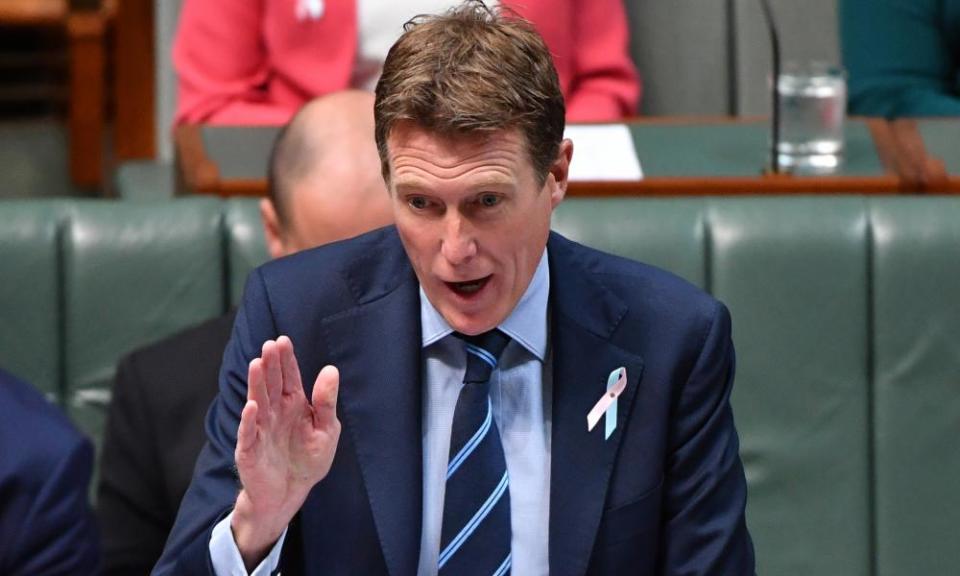Australian litigation funding giant rejects Christian Porter's 'lawfare' claim

Australia’s biggest litigation funder, IMF Bentham, has rejected the attorney general’s suggestion the industry is engaging in “lawfare” against mining companies.
The company also hit back at claims by the chief executive of employer body AI Group, Innes Willox, that the industry is out of control, costing Australian business billions of dollars and needs urgent regulation.
Christian Porter’s attack followed hot on the heels of a broader attack on environmental and social activists by the prime minister, Scott Morrison, who used a speech to mining executives to slam secondary boycotts and urge big companies to “listen and engage with their quiet shareholders, not just the noisy ones”.
IMF, which manages about $2bn in investments and last week merged with the Dutch funder Omni Bridgeway, has several shareholder class actions against mining sector companies on foot.
Related: Coalition warned outlawing climate boycotts could breach constitution
However, the lawsuits relate to allegations of corporate governance breaches, not environmental issues.
“We can assure the attorney general that political considerations and the interests of activist groups are never factors when we decide to take on a matter,” its chief investment officer, Tania Sulan, told the Guardian.
“IMF’s focus is on the merits of the case and whether individuals have a legitimate grievance.”
She said the evidence, including new research by a business law professor at Monash University, Vince Morabito, did not support the proposition that there had been an explosion of activist lawfare.
Morabito found that the number of class actions filed in Australia jumped from 38 in the 2016-2017 to 56 in 2017-18, and rose again to 59 last financial year.
However, he said this was low by international standards. In 2017 there were 108 cases filed in the Canadian state of Ontario which has a population of just 8m.
Morabito also poured scorn on AI Group’s contention that fear of class actions was driving away potential company directors, saying that in three quarters of shareholder class actions directors were not named as defendants.
Related: Global funds management giant rejects Scott Morrison's attack on activist investors
IMF’s chief executive, Andrew Saker, said the company was always willing to discuss the future of litigation funding in Australia, and had consistently advocated for greater oversight of funders.
But he took issue with AI Group’s seven-point plan to reform the industry, which included handing regulation of it to the Australian Securities and Investments Commission and limiting the share of winnings paid to funders and lawyers.
“While we welcome AI Group’s contribution to the issue, we would caution that many of its recommendations have been tested in the past in Australia or overseas and either rejected by courts or found to be impractical,” Saker said.
“It is important that any proposed changes do not have unintended consequences that undermine the role of credible litigation funders in protecting the rights of individuals.”
In a detailed response to AI Group’s attacks, IMF said it endorsed Asic’s view that the courts were better placed to supervise funders than it was, and said judges had more power over the share of winnings that flows to the industry after a landmark ruling in 2016 against insurer QBE.
The judgment, known as Money Max after the lead plaintiff in the case, was widely credited with bringing down funding premiums but is on appeal to the high court.
Willox also claimed it was difficult for courts to order costs against funders and lawyers who brought actions under the Fair Work Act, a burgeoning area of litigation due to corporate Australia’s ballooning wage underpayment problem.
However, IMF said this was “inaccurate under the current law”, pointing to a federal court decision last month in a Fair Work case involving the Mount Arthur coalmine where funder Augusta Ventures was required to pay $3.1m in security for potential costs.

 Yahoo News
Yahoo News 